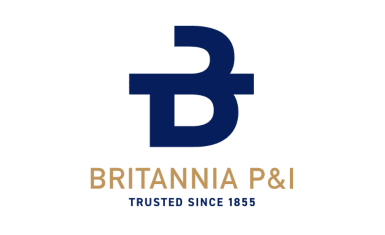
Britannia P&I Club has warned operators and the shipping industry to be vigilant when carrying olive margine. It wanrs about the risks of liquefaction. According to Britannia, it has become aware that the olive margine, sometimes described as “Vegetable Residues” or “Olive Mill Waste Water (OMWW), is being offered for loading at ports in North Africa.
Olive Margine is not listed as a cargo in the IMSBC Code Britannia has been informed by cargo experts that it is prone to liquefaction and can, therefore, threaten ship stability. It also added that Continue reading “Britannia P&I Club issues warning about risks of olive margine carriage”
 The International Union of Marine Insurance (IUMI) has published its 2022 global marine insurance market analysis known as the IUMI Stats Report. The report presents various statistical data from multiple sources, including IUMI’s data, to provide insight into the marine insurance market within the context of global trade and shipping. For the third year, IUMI Stats contains analysis from its major claims database, which now comprises 11,000 claims records amounting to USD 17.3 billion of major losses.
The International Union of Marine Insurance (IUMI) has published its 2022 global marine insurance market analysis known as the IUMI Stats Report. The report presents various statistical data from multiple sources, including IUMI’s data, to provide insight into the marine insurance market within the context of global trade and shipping. For the third year, IUMI Stats contains analysis from its major claims database, which now comprises 11,000 claims records amounting to USD 17.3 billion of major losses. The Swedish Club in association with CWA International has produced a practical guide to help operators with the hold cleaning of bulk vessels. According to the guide, the preparation and cleaning of a vessel’s cargo holds for the next intended cargo is a vital part of bulk carrier operations. Hold cleaning requires clear planning, preparation and efficient execution.
The Swedish Club in association with CWA International has produced a practical guide to help operators with the hold cleaning of bulk vessels. According to the guide, the preparation and cleaning of a vessel’s cargo holds for the next intended cargo is a vital part of bulk carrier operations. Hold cleaning requires clear planning, preparation and efficient execution.
 The recently published Casebook by The Swedish Club’s highlights an incident when the Master of a ship noticed smoke coming from the forward part of the vessel. At the same time the fire detection system for cargo hold 2 sounded on the bridge. The Master described the smoke as being white at first and then greyish. The Chief Officer, however, described the smoke as being “dark grey, almost black”.
The recently published Casebook by The Swedish Club’s highlights an incident when the Master of a ship noticed smoke coming from the forward part of the vessel. At the same time the fire detection system for cargo hold 2 sounded on the bridge. The Master described the smoke as being white at first and then greyish. The Chief Officer, however, described the smoke as being “dark grey, almost black”. In a recently published casebook featuring four case studies,
In a recently published casebook featuring four case studies, 

 The Transportation Safety Board of Canada (
The Transportation Safety Board of Canada ( The British Tugowners Association has released its latest guidance to industry, Recovery of Persons in Water (PIW), a Guide to Good Practice for Small Vessels.
The British Tugowners Association has released its latest guidance to industry, Recovery of Persons in Water (PIW), a Guide to Good Practice for Small Vessels. Captain Andrew Moll OBE shares some safety critical advice with boat users to mark the start of carbon monoxide awareness week 2022, reminding them of the hazards posed by this poisonous gas.
Captain Andrew Moll OBE shares some safety critical advice with boat users to mark the start of carbon monoxide awareness week 2022, reminding them of the hazards posed by this poisonous gas. An admiralty court in London has found fault with all three vessels involved in a collision on the Suez Canal in 2018, including a bulker that struck two vessels within the span of a single day.
An admiralty court in London has found fault with all three vessels involved in a collision on the Suez Canal in 2018, including a bulker that struck two vessels within the span of a single day.